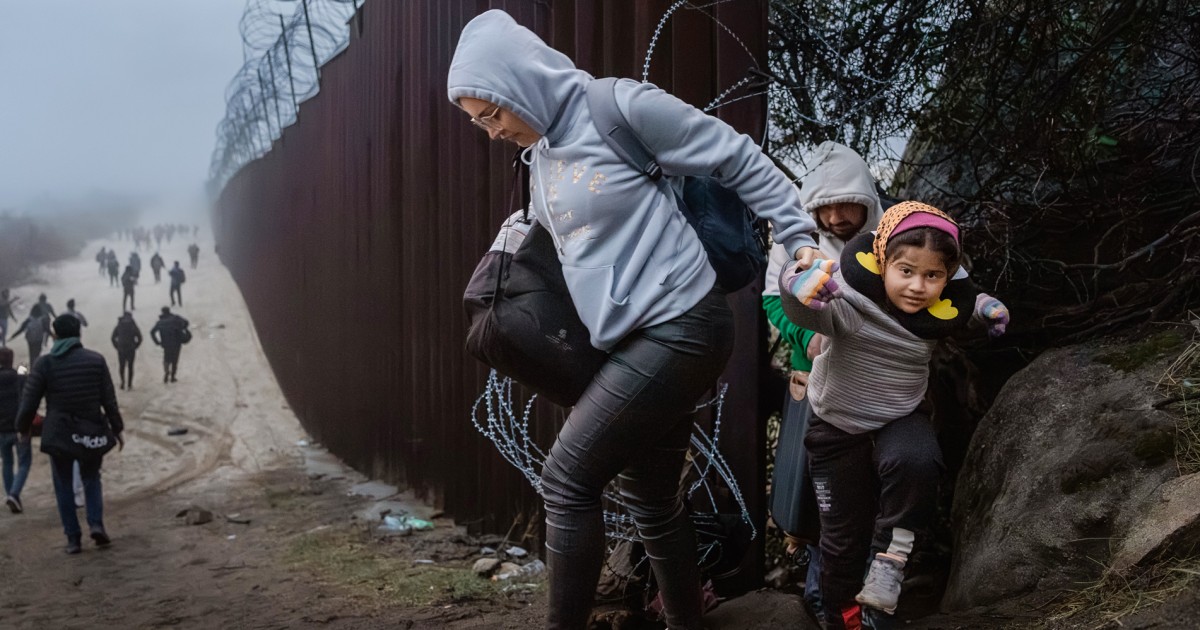Texas' SB4 law was extended indefinitely by the Supreme Court on Monday, just as the temporary block the Supreme Court had imposed on it while reviewing the constitutionality of the controversial measure that empowers law enforcement agencies to arrest on charges expired. penalties for immigrants who cross the border irregularly.
The law will remain on hold while the court continues to deliberate on whether it should be blocked from taking effect on a more permanent basis.
There are no deadlines for the final decision of the highest court.
The court was expected to rule this afternoon on the legislation, which was temporarily blocked earlier this month, before a second extension issued by conservative Justice Samuel Alito on March 12, while the future of one of the immigration laws was decided. toughest in the country.
District Judge David Ezra had rejected the law last month, calling it unconstitutional and rebuking multiple aspects of the legislation in a 114-page ruling that also dismissed claims by Texas Republicans that an “invasion” was occurring along along the southern border.
But a federal appeals court stayed that ruling, and the Justice Department asked the Supreme Court to intervene.
The legal dispute over the SB4 law
is just one of multiple court fights between the Biden Administration and the governor of Texas, Republican Greg Abbott
, who has consistently complained about the immigration crisis on his state's border with Mexico.
Abbott signed the law in December as part of his tough measures along the Texas border with Mexico, in an effort that tests how far state officials can go to prevent migrants from crossing into the United States illegally.
These are the most important aspects of the law
The law allows any Texas officer to detain people suspected of entering the country without documents.
In order to do so, officers must have probable cause, which may include witnessing a break-in or seeing it on video.
However, SB4 cannot apply to people who are legally in the United States, including those who have obtained asylum or are enrolled in the Deferred Action for Childhood Arrivals (DACA) program.
Agents can make arrests anywhere in Texas, with some exceptions.
However,
Republican state Rep. David Spiller, who introduced the bill in the state House
, believes the vast majority of arrests will occur within 50 miles of the state border. United and Mexico.
Among the places where arrests cannot be carried out are public and private schools, as well as churches, synagogues or other established places of worship.
They also cannot take place in hospitals and other healthcare facilities, including those where sexual assault forensic examinations are carried out.
The law allows state justice to order the expulsion of people without judicial process.
Texas officials will have the discretion to deport detainees.
Once apprehended, immigrants may choose to accept a state judge's order to leave the United States or be prosecuted for a misdemeanor charge of illegal entry.
Those who do not leave US territory run the risk of being arrested again and being prosecuted for more serious crimes due to repeat offenses.
SB4 establishes that those ordered to leave the United States
will be sent to ports of entry along the border
with Mexico, regardless of whether or not they are Mexican citizens.
Previously, helping to cross or transport an undocumented immigrant was punishable by up to two years in prison.
With SB4 this penalty is increased to 10 years behind bars and the payment of a maximum fine of $10,000.
If a detained person is a repeat offender, the penalty could reach up to two decades in prison.
For those who are prosecuted and convicted of operating a house to hide undocumented immigrants, the sentences will have a minimum of five years in prison.
But
the penalties will be increased to their maximum
if the crimes occur in regions declared disaster zones.
The measure also expands sentences for other crimes committed during immigrant smuggling.
The law provides that those arrested who collaborate with justice in an investigation related to illegal immigration may benefit from having their sentence reduced by half.

